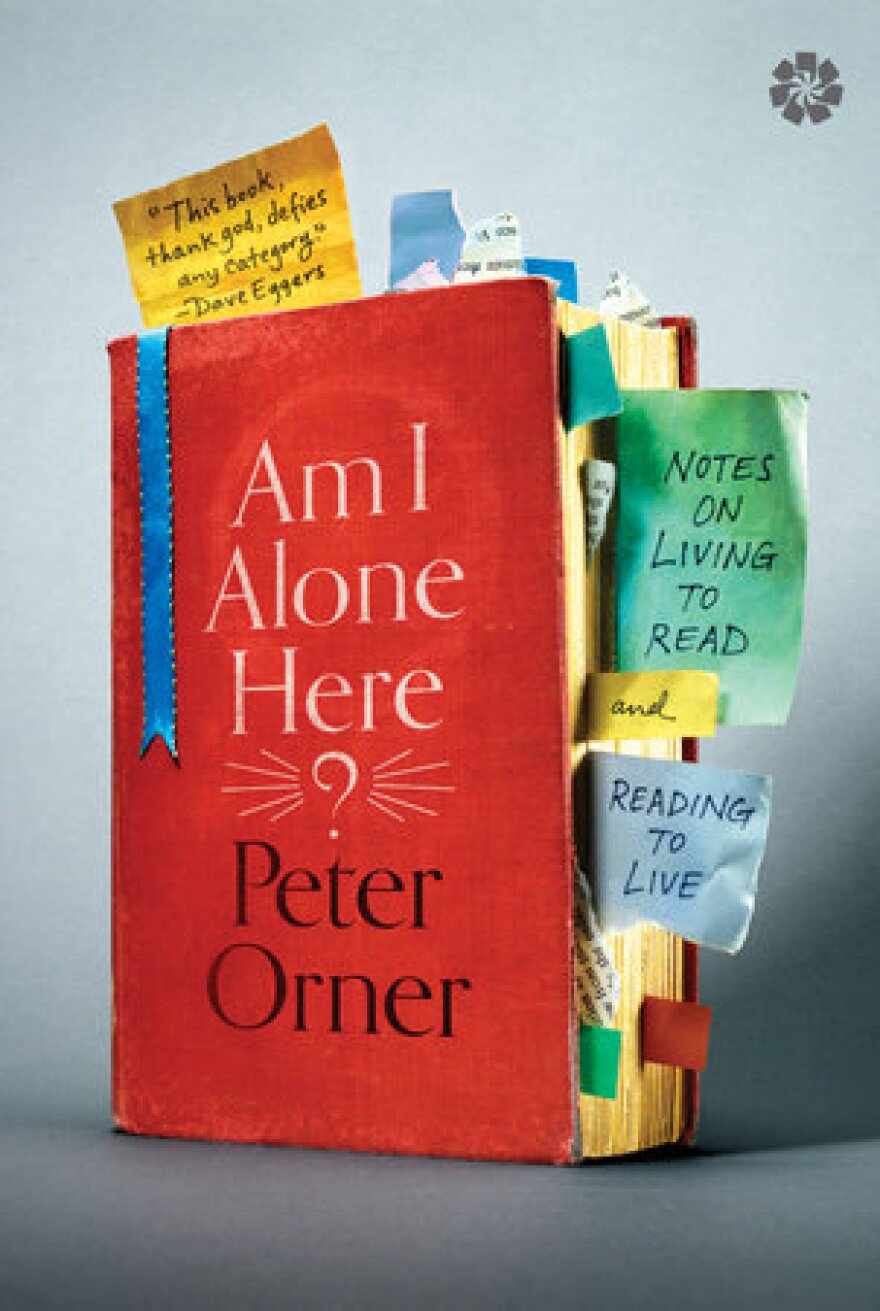This is our 100th episode of the Book Public podcast. In that time, we’ve all heard from amazing authors about their books — how and why they wrote them. Their muses, inspiration, subjects, plots, conflicts, and themes.
Within that happy 100, I’ve not just interviewed authors, but also offered brief reviews and commentaries about books. We’ve also offered an occasional series called “The Lonely Voice with Peter Orner.”

That series is inspired by the book Am I Alone Here?: Notes on Living to Read and Reading to Live, Peter Orner’s 2016 essay collection. Listen to any episode of “The Lonely Voice with Peter Orner” and you’ll hear me refer to one or another essay in this book.
C.S. Lewis is largely credited with having said, “We read to know we are not alone.”
So what’s the story? Are we alone or aren’t we? Well, yes and no. And that is truly the best possible answer.
In Am I Alone Here?, Orner sets the stage for the necessary condition of solitude in his introduction — though, he says, “he’s always been suspicious of introductions.” But the point is that he is alone, in a garage that he uses as an office. He is alone. Utterly. He is also thinking about the death of his father and shares that in the year or so after his father died, he really couldn’t write fiction: “Since it is my job to obliterate blankness with words, I felt adrift.” Recalls, Orner, “It was April and snowing. Light flecks of snow melted on my face like false tears. We dropped an urn filled with soot into a small square hole and walked back to our cars.”
Listeners of “The Lonely Voice with Peter Orner” sometimes ask me where the title of the series comes from. There isn’t a straight answer for that either, but there is a book by Frank O’Connor called The Lonely Voice. It is a study of the short story that is one of the few books about short stories (or writing in general) that Orner says he can “stomach much.”
I remember so clearly the first time I read Orner's essay about The Lonely Voice. I’d studied Frank O’Connor’s book for years — and admired it, shared excerpts of it with my own students. But reading Orner’s words about it was almost an out-of-body experience in that, I revered O’Connor’s obstinate stance and perspectives so much for so long. And here was a kindred spirit out there expressing more and more beyond my own understanding of it all.
Am I Alone Here? Well, sometimes. I read to know I’m alone. We read to know we are not alone. Orner is right when he says that all of our losses — the ones we experience entirely alone in the world — are collective. “If they’re not,” he says, “we’re truly doomed. If we can’t overcome them ourselves, the very least we can do is recognize that we aren’t the only ones out here trying to get by.”
And sometimes the best way to get this idea across is to write — and read — about characters that are like us — meaning entirely alone. Outsiders.
And it’s not just the nobody outsiders that makes the story. But the story itself must be accessed from its outer dimensions. The margins.
And here is something else. There just isn’t enough love given over to short stories these days. And let me say this, too, there just isn’t enough love for reading deeply or widely. And that’s a problem in our world today.
There are writers out there whose books speak to us. Sing to us, pull at us and say "Just one more page!" The mind meld is impossible to articulate — a totally ineffable Corsican thing that you can’t put into words. The only thing you can do is read more stories to experience it again.
The book that informs nearly every story I read is Am I Alone Here?: Notes on Reading to Live and Living to Read by Peter Orner.
The first time I interviewed him was in September of 2020. There have been some 16 episodes of "The Lonely Voice with Peter Orner" since then.
That sure feels like something worth celebrating. Thank you, Peter Orner.
Happy 100, Book Public!



